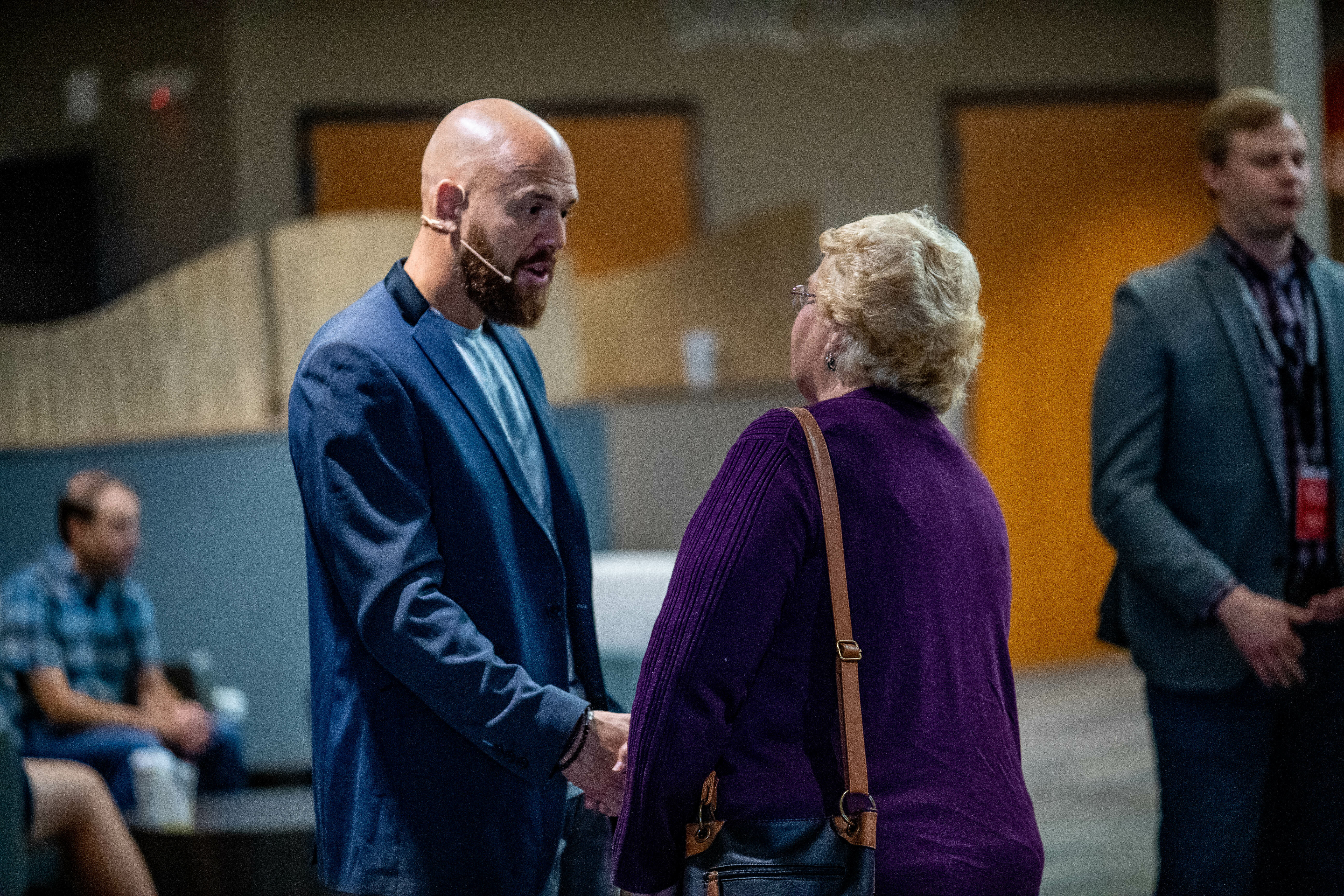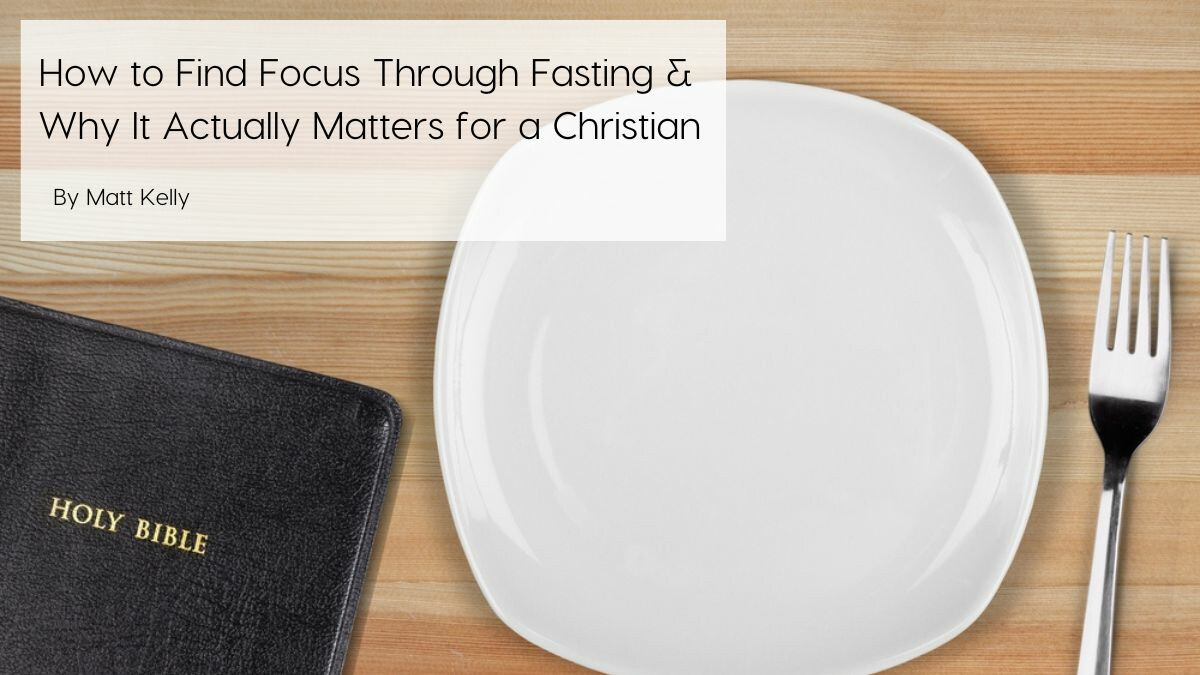
The sentiment of confusion and frustration around the topic of church membership is far too common in churches today.
In my conversations with people over the years, I've not often heard, “Why should I care about church membership?” Instead, it's been statements and questions such as, “I don’t understand the point . . . Why should I go through the process? How does it even work, and why would I want to be a church member?"
In our culture today, having to commit to something long-term sounds restrictive. "Do I really want to be held accountable? Is accountability the only reason the church needs my information?"
There is a massive misunderstanding and a lack of teaching on the topic of church membership in our churches today.
Why is church membership so important?
There are many reasons why church membership matters. I will list a few of those reasons here and then dive into them deeper as I go along:
1. Church membership allows the congregation to affirm your changed heart and salvation, not allowing you to deceive yourself into thinking you are saved when you are not. Other believers affirm your testimony, and you are welcomed into the church family. This is not only about affirmation but also accountability.
2. Church membership allows for pastoral care from your church's pastors and elders. Membership helps them know who you are and allows you to be in "the mess" of life together.
3. Church membership allows for church discipline. We see the model for this in Matthew 18:15-17, as we look to win a brother or sister in Christ back for the sake of the body of believers and for the glory of God.
4. Church membership gives YOU insight into what your church is doing and the knowledge and ability to tithe (give) towards something you are an ambassador for (i.e., seeing God work in and through your local church). This can release the grip that money may hold on your heart. It also should inspire you to use your gifts to serve one another and help build God's Kingdom in your local context.
Now, let's dive into some of these a bit deeper!

Affirmation and Accountability:
To be a church member means we have been vetted, in a sense. We have had the privilege of sharing what God has done in our lives and have been affirmed by others that we are living out what we say we believe. It also shows commitment, which is hard to find these days. When we become a member, we are saying, “These are my people. This is my tribe. I am going to be here through the thick and thin of it and give more than I take.” Mark Dever, in his book Nine Marks of a Healthy Church, writes,
“Church membership is our opportunity to grasp hold of each other in responsibility and love. By identifying ourselves with a particular church, we let the pastors and other members of that local church know that we intend to be committed in attendance, giving, prayer, and service. We allow fellow believers to have great expectations of us in these areas, and we make it known that we are the responsibility of this local church. We assure the church of our commitment to Christ in serving with them and call for their commitment to serve and encourage as well.”
Christianity is not a “lone ranger” endeavor. We need a community to venture through the Christian life and other believers to speak into our lives to help us grow in sanctification (i.e., becoming more Christ-like every day). Kevin DeYoung puts it this way,
“How many of Paul’s letters were written to individuals? Only a handful, and these were mostly to pastors. The majority of his letters were written to a local body of believers. We see the same thing in Revelation. Jesus spoke to individual congregations in places like Smyrna, Sardis, and Laodicea. The New Testament knows no Christians floating around in 'just me and Jesus' land. Believers belong to churches.”
To follow Christ is to belong to a church; there is no other model. There is no Plan B to grow in sanctification, holiness, love for one another, correction, and repentance.
You won’t get this at the local bar, the community center, by joining a sports league, or by 'doing church' on your own. There is only one model, the best one - Plan A - that God has ordained for us: the local church.
Pastoral Care:
Becoming a church member also allows the church's pastors and elders to know who is under their care. The Lord will hold them accountable for how they shepherd and lead you. If you are committed, it is easier for them to fulfill their calling. Hebrews 13:17 says,
“Obey your leaders and submit to them, for they are keeping watch over your souls, as those who will have to give an account. Let them do this with joy and not with groaning, for that would be of no advantage to you.”
When you put yourself under the care of the pastors and elders of a church to be encouraged, corrected, and potentially disciplined, it is for your good! Submitting to a church and becoming a member is less about submitting to a group of pastors or elders than submitting to Jesus. Jesus is our Lord. It is his church, and ultimately, we submit to him. Jesus is the true Shepherd, and the pastors and elders are undershepherds, looking to help lead and care for you as they submit to Christ.
Do you want to grow in pride and individualism, or do you want to grow in humility and godliness? Godly leaders lead with humility and gentleness, and God calls his people to submit to the leaders he has placed in their lives. This doesn’t mean you submit to every pastor out there. It means that God has called you to follow specific leaders. 1 Thessalonians 5:12-13 says,
“We ask you, brothers, to respect those who labor among you and are over you in the Lord and admonish you, and to esteem them very highly in love because of their work. Be at peace among yourselves.”
Churches in the New Testament seemed to clearly understand who was a part of their church and who wasn’t. In 1 Timothy 5, Paul talks about a list of widows the church supported. It wasn’t every widow in the world; it was a list. In 1 Corinthians 5:1, Paul talks about someone in their midst who was sinning greatly, saying that their actions “do not occur even among the pagans.” So, it’s clear that the New Testament Church understood, in some sense, who was in the church and who was not. We see it again in 1 Peter 5:1-3:
“As a fellow elder, a witness of Christ’s sufferings, and a partaker of the glory to be revealed, I appeal to the elders among you: Be shepherds of God’s flock that is among you, watching over them not out of compulsion, but because it is God’s will; not out of greed, but out of eagerness; not lording it over those entrusted to you, but being examples to the flock.”
God entrusts certain people to certain pastors and elders. This indicates that there is clarity about who is under their charge and care and who isn’t. We need to belong to a church to be known and cared for in this way.

Church Discipline:
This leads us to church discipline. When the pastors and elders of a church know who is under their care, they also know when a person is engaging in sinful behavior and is unrepentant, possibly to the point where church discipline becomes necessary. John Piper, pastor and theologian, says it this way,
“If there is no church membership, how can you define the group that will take up this sensitive and weighty matter of exhorting the unrepentant person and finally rendering a judgment about his standing in the community? Defining who 'the church' is will bring clarity to handle such a weighty matter. This makes clear what we mean when we say, 'Take it to the church'."
Matthew 18:15-17 provides the model for us to follow when elders step in and discipline may be necessary. When someone starts to go astray, we should run after them! With prayerful humility, we should warn them of their behavior and how their sinful actions are causing damage to themselves and others. We should seek to win them back with love and restore them to godly living. Daniel Akin describes the three primary types of sin subject to church discipline. This isn’t an exhaustive list but primary ones we should watch out for:
“These include blatant immorality (1 Corinthians 5:1-5), doctrinal error and heretical teaching (1 Timothy 1:3-7), and facilitating dissension within the church (Titus 3:10). Spiritual accountability is vital to the life of a local church, but it is only possible when there is an established membership.”
When you are a member, you open yourself up to needed accountability and care that you can often only find in the church.

Tithing & Serving:
Finally, we arrive at the topics of tithing and serving. I left these for last as they are the most popular topics to talk about! All kidding aside, it is vitally essential for church members to have a good grasp on these. The imagery that works best for this is the “Costco” picture.
There are some significant differences between Costco and a church. Without getting into all the obvious ones, the simplest one is the yearly dues. At Costco, you pay your dues yearly, and then you are a member. Plus, you can snag free samples of overpriced food while you shop! But what about a church? Why does membership coincide with tithing, not forcefully but joyfully?
We are called to be cheerful givers, not to give reluctantly or under compulsion (being forced), honoring the Lord with our wealth (2 Corinthians 9:6-7; Proverbs 11:24; Proverbs 3:9; Matthew 6:21). In the New Testament, there is no specific mandate for how much we are to tithe, but the Old Testament says 10% (Genesis 14:20; Leviticus 27:30). Jesus upholds the command to tithe in Matthew 23:23. I would encourage you to pray specifically about the amount you should tithe and if your current sacrifices align with what God asks of you. God is much more interested in your heart than “your money." We are just stewards of the gifts he has given us (1 Peter 4:10). Whether it's financial resources or specific skills, we are called to give them away in joyful service to others to build up the church - releasing our grip on the self-serving mentalities that often plague us.
To be a biblical church member is not just to tithe while sitting back and letting the church serve us. It is to give joyfully while serving using our gifts (1 Corinthians 12:12-26). It means to give not only financially but also in our actions towards others (serving). To give to a church or to be on their membership roll without engaging in the work of the ministry is not biblical membership. It is a self-serving, man-made, consumer-minded approach. Sadly, this approach has plagued the local Church for decades, resulting in the burnout of pastors, staff, and volunteers who are asked to do too much outside of their giftings.
Notice how I previously used the word "ambassador" rather than "consumer." An ambassador promotes and champions something, while consumers only take and consume for their benefit. A consumer-minded, non-serving member is an oxymoron; it is not biblically accurate. If you are looking to be part of a church and attend because you like the music, the layout of the building, the tradition - dare I even say the preaching - but are not looking to submit to God's Word or use your gifts for the edification of the body, then you have misunderstood what it means to be a church member.
I am being a bit facetious here about why you may attend church on a Sunday morning, but I think you get the point. We are not only to consume based on preferences but instead look for ways to engage and invest in our specific community of believers. When we use our gifts, we function as God designed us - in his wisdom and grace, to unify the body and bless other believers in service - through edification and sanctification.
Here is the fun secret to all of this. When you serve other believers, it is often YOU who is blessed! You get a front-row seat to how God works in the local body and how your service to him (not to any individual person, but ultimately to him) is multiplied. Fruit is birthed as you use your gifts. What a joy it is to unite with the Father to serve his church.
Let this be your ongoing prayer each week: 'Father, how can I serve your church with the gifts you’ve given me? Is there something new for me to do? Should I stay put and stay faithful in my current sphere of influence? Am I tithing in a sacrificial way to build up your church and bless others?' It should never be a question of if you serve but rather how and where.
Will you take the first step?
I hope by now you are convinced that becoming a member of a local church is imperative! Now this is where I encourage you to go deeper and take a step. I encourage you to stake your flag in a local church at Berean or elsewhere. Live out your faith in a body of believers who will come alongside you and help you grow in holiness, joy, humility, and service.
I know when I see a list of requirements, it can deter me from moving forward. But let me encourage you not to be like me. Just dive in and see for yourself the blessing of becoming a local church member.
Here at Berean, we require the following steps for membership:
1. Attend First Connection (1st Sunday of the month).
2. Attend Foundations (2nd Sunday of the month).
3. Attend Faith Story (3rd Sunday of the month).
Attendance at a First Connection class is a prerequisite for both the Foundations and Faith Story classes in sequence. Baptism is also required for membership at Berean. When you attend Foundations, you can learn more about this requirement and ask questions. Baptisms happen quarterly at our church-wide Faith Family Celebrations.
For more information on these three steps, how they connect, and to register, click HERE.
We can't wait to watch you get connected and walk alongside you as you take the next step on your faith journey!




